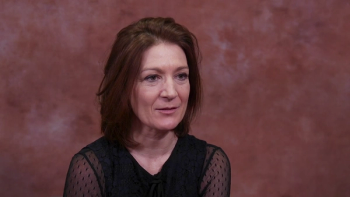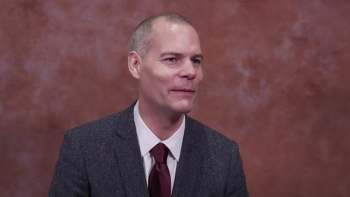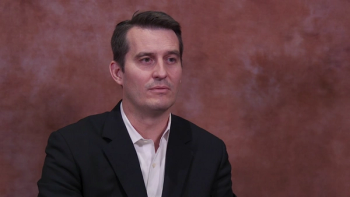
Researchers report that PD-1/PD-L1 monoclonal blocking antibody allows T cells to remain active and fight malignant evolution, subsequently preventing tumor resistance.

Your AI-Trained Oncology Knowledge Connection!


Researchers report that PD-1/PD-L1 monoclonal blocking antibody allows T cells to remain active and fight malignant evolution, subsequently preventing tumor resistance.

FL progression risk at 2 years was twice as high in the high-risk vs the low-risk group, and the gene-expression score may help to guide treatment.

DLBCL patients who received in-hospital chemotherapy had a lower risk of death during hospitalization.

Single-agent MOR208 showed promising activity with long-lasting responses in aggressive and indolent NHL subtypes, including in rituximab-refractory disease.

The US FDA has granted Priority Review designation for tisagenlecleucel (Kymriah) for treatment of adult patients with relapsed or refractory diffuse large B-cell lymphoma who are ineligible for, or have relapsed after, ASCT.

Pfizer’s rituximab investigational biosimilar PF-05280586 met the primary endpoint of overall response rate equivalence to rituximab-EU (MabThera) as a frontline treatment for patients diagnosed with CD20-positive follicular lymphoma, the company announced.

Immunochemotherapy should remain the standard induction approach for patients with high-risk follicular lymphoma.

A recent study found that Hodgkin lymphoma patients with active disease achieved clinical responses with tumor-specific T cells that were genetically modified to be rendered resistant to transforming growth factor beta, a cytokine expressed by most human cancers.

Adjuvant everolimus did not improve disease-free survival in patients with DLBCL and confirmed complete response after 1 year of rituximab treatment.

Treatment of previously untreated follicular lymphoma with atezolizumab combined with obinutuzumab and bendamustine was associated with widespread adverse events and a treatment-related death, according to an interim analysis of a phase Ib/II cohort study.

Lenalidomide plus rituximab failed to demonstrate superiority over standard of care for follicular lymphoma in the phase III RELEVANCE trial.

PD-L1 expression was more common among patients with the GCB subtype of diffuse large B-cell lymphoma, and PD-L1 positivity predicted shorter survival.

BCR-ABL1 transcript levels at time points within the first year of therapy for CML can best predict the achievement of a deep molecular response.

CAR T cells targeting CD19 can be effective at treating relapsed/refractory diffuse large B-cell lymphoma or follicular lymphoma, with high rates of durable remission.

This video reviews updates on the treatment and biology of splenic and nodal marginal zone lymphoma.

History of Epstein-Barr virus or immunosuppression did not affect outcomes for patients with diffuse large B-cell lymphoma.

Data presented at the 2017 ASH meeting showed that copanlisib resulted in an improved response rate and low rate of severe toxicities in patients with relapsed/refractory B-cell lymphomas.

In this video reviews the management of nodular lymphocyte-predominant Hodgkin lymphoma.

Adding rituximab to MBVP induction chemotherapy does not improve outcomes for patients with primary central nervous system lymphoma.

In those with DLBCL, Burkitt lymphoma, and Hodgkin lymphoma, cure is often achieved. Furthermore, in the salvage setting, whether auto-HCT or allo-HCT is used, the same appears to be true. A great deal of progress has been made in the treatment of lymphoma in patients with HIV infection, but more remains to be done before outcomes are comparable to those of the general population.

This video reviews the treatment of mantle cell lymphoma cases that do not fit the typical mold.

This video highlights results of a retrospective review that examined survival and other outcomes in younger mantle cell lymphoma (MCL) patients who received consolidation with autologous hematopoietic cell transplant during first remission.

A study presented at the 2017 ASH annual meeting showed that mogamulizumab resulted in significantly superior progression free survival and better outcomes compared with vorinostat in patients with previously treated CTCL.

A proof-of-concept study has demonstrated that resistance to treatment in multiple myeloma and mantle cell lymphoma could be linked to a protein called Nrf1, which appears to respond to proteasome insufficiency or pharmacological inhibition.

In this interview we discuss how a short diagnosis-to-treatment interval in newly diagnosed diffuse large B-cell lymphoma is associated with worse outcomes and how this could lead to trials favoring patients with a longer diagnosis-to-treatment interval and better expected outcomes.